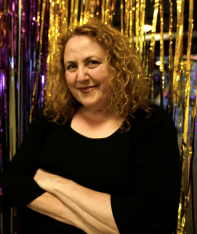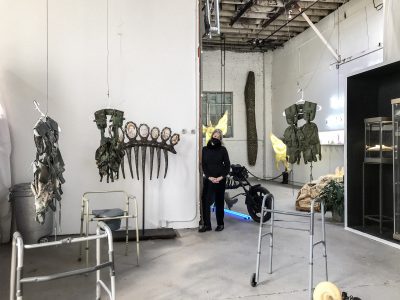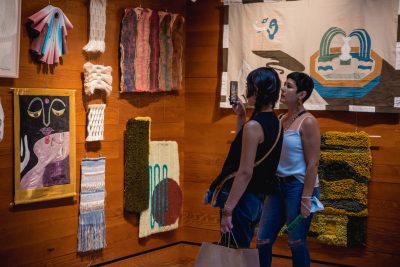A screen grab from 'My So-Called Selfish Life' (Iris Ng)
Meet the women who choose not to have kids (not that it’s any of your business)
'My So-Called Selfish Life’ is a new doc that gives voice to women who opt out of motherhood—and how society inhibits that choice
For much of her life, Therese Shechter knew that she didn’t want to have children. She tiptoed around the subject for years, including with a serious partner in her 30s. But, she says, “I really never talked about it, and also really never had language for it.”
By her 40s—an age traditionally seen as the tail end of a woman’s baby-making years—the external pressure to have children had begun to wane, and Shechter had become more comfortable talking about her choice to not have kids. With her new documentary, “My So-Called Selfish Life,” Shechter has found her language.
“There’s a reason we don’t talk about our desire to not have children,” Shechter says. “There’s a lot of stigma and judgment attached to it. There’s a lot of value judgment, like what kind of woman are you if you don’t want children? Are you even a woman?”


Shechter
Shechter’s personal choice and the multi-generation movement to be “child free”—as opposed to childless, which implies a desire or failure to have children—is the subject of “My So-Called Selfish Life.” The film centers on the experiences of female-identifying folks in Brooklyn, Toronto, Seattle, Denver, Michigan, Israel, and North Carolina, weaving in everything from “Seinfeld” scenes to speeches from Sen. Lindsey Graham of South Carolina to showcase the deeper cultural and political forces that tie a woman’s value to her womb.
“[Each of my films] have a personal element to them. And they all challenge some aspect of what we hold sacred about womanhood,” Shechter notes. “I’ve always been really interested in these ideas that we’re raised on that are generally not true about how we’re supposed to be living our lives and what gives us value.”
A wide variety of people choose to not have children, and their reasons are as diverse as they are. The average birthrate in the U.S. fell for the sixth consecutive year in 2020. “So-Called” makes those stats personal. In a series of interviews, the film highlights people including Brooklyn rapper Miss Eaves, a Black woman who fled to New York City to escape the social pressures of her Southern upbringing; a queer, trans couple who were only met with questions about children when one partner began presenting as male; a college-aged woman struggling to get her tubes tied, and an infertile woman who very much wanted children but transformed her life after her husband left her because she couldn’t conceive. The decision to have children is personal and nuanced, “So-Called’s” subjects demonstrate.
‘Choosing myself’
“Having a child will profoundly affect a person’s life in ways that they might not even expect, and especially disproportionately for women: physical and mental health, career, education, any kind of ambition. We saw during the pandemic how women’s careers were completely derailed because they didn’t have childcare,” Shechter notes.
Recognizing the impact children have on a parent’s life—and that some women are unwilling to shoulder that burden—is necessary to deconstruct the idea that child free women are selfish or hate children. Chanel Dubofsky, a Brooklyn writer who has extensively covered reproductive topics and consulted with Shechter for the film, says she’s perturbed by having to mollify people with the phrase “I’m child free but I love kids.”
“It feels like we’re being pushed to express a material desire whether or not we have it. If you’re child free, you have to spend a lot of time expressing that you’re not evil,” she says. “I’m actively choosing myself and my mental health and the kind of life I want. To say I’m not selfish feels really like it’s reinforcing this circle of being good—be this kind of person, be this kind of woman.”
Before filming, Shechter—an independent filmmaker whose previous titles include “I Was a Teenage Feminist” and “How to Lose Your Virginity”—put a survey on Facebook asking people to share their experiences around not having children. She received nearly 2,000 responses in the first week and used some of the sources as a jumping-off point for the documentary. While social media has provided a platform for people to discuss their choices and find child-free community, sociologists have been writing on the subject for a century.
While “So-Called” explores the myriad personal reasons someone would choose not to have children, it also uses history of reproductive justice to underscore the complexities of the conversation around being child free. Women have sought autonomy over their own bodies for millennia through various means, and “So-Called” digs into the ways pronatalism (the institutional promotion of baby-making) has infiltrated culture through social, legal and moral means. The film discusses the not-so-long-ago history of eugenics, current issues around reproductive security, and the backlash contemporary writers face when covering the subject of child-free women in a positive light.
Crucially, the film gives platform to Black women and women of color whose relationship to non-motherhood is influenced by a history of enslavement, rape and forced sterilization. Among the subjects is Dr. Kimya Nuru Dennis, a Black professor who at the time of filming taught a reproductive justice course on non-reproduction at Salem College in North Carolina. Dennis’ course is a shift away from an expectation that women of the African diaspora become mothers; she has been criticized and accused of being anti-Black for her choice not to have children and educate students on the option to be child free.
Dennis and others like her underscore a contradiction of post-feminist era, says Israeli sociologist Orna Donath, who studies the equally controversial subject of maternal regret. While things may seem wide open for women, “we’re only being applauded when we make choices in line with societal norms.” Adds OBGYN Bernadith Russell: “Motherhood has increased in value yet again. The almost obsessive attainment, and children as…a mark of accomplishment, it’s almost fetishized in our society.”
An encroachment on rights
“My So-Called Selfish Life” is making the film festival rounds at a time where reproductive rights are under severe threat.
Draconian abortion legislation was passed in Texas and, more recently, a proposed bill in Ohio would make abortion at any stage of pregnancy illegal. A brief filed with the Supreme Court against Mississippi’s restrictive abortion laws extrapolated that if abortions became illegal in 23 states, 26 million women would be affected.
“I’m a little pessimistic about things these days because we’re pedaling backwards in terms of our reproductive health care and the control of our own bodies and, by extension, our futures,” Shechter says. She hopes “So-Called” empowers and validates viewers. “I think these things are always treated like personal problems, and they’re not. They’re systemic problems. And I hope that the film creates an understanding of that, so that we can think about all of these intersected issues as a societal, not a personal, failing.”
My “So-Called Selfish Life” isn’t streaming yet, but Shechter will host a virtual community gathering featuring selected scenes from the film on Dec. 2. The event, “How To Survive the Holidays as a Childfree Person,” will feature “candid conversation around surviving (and even enjoying) the holiday season as a person who doesn’t have children, by choice or circumstance.”
You might also like 


























